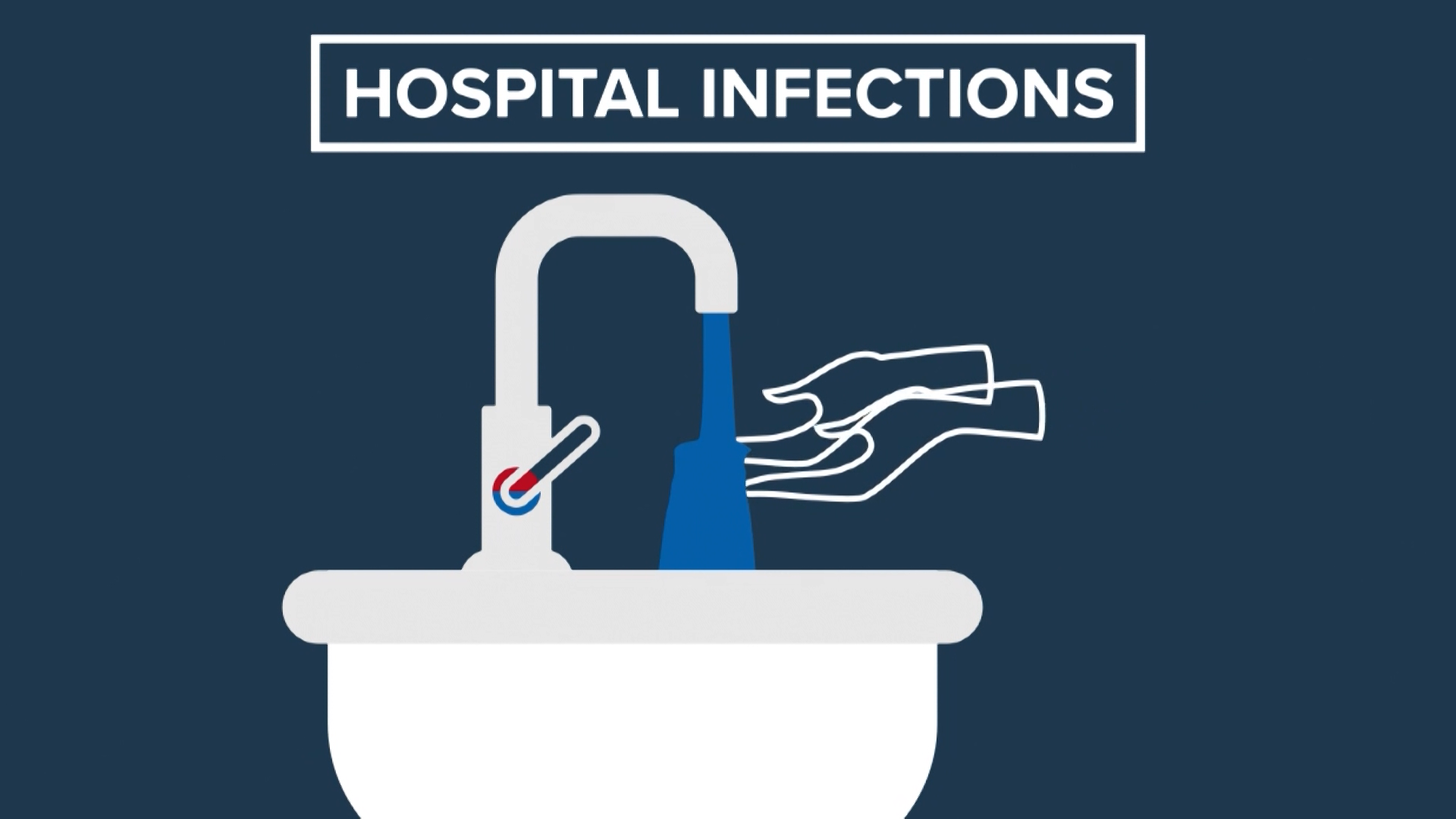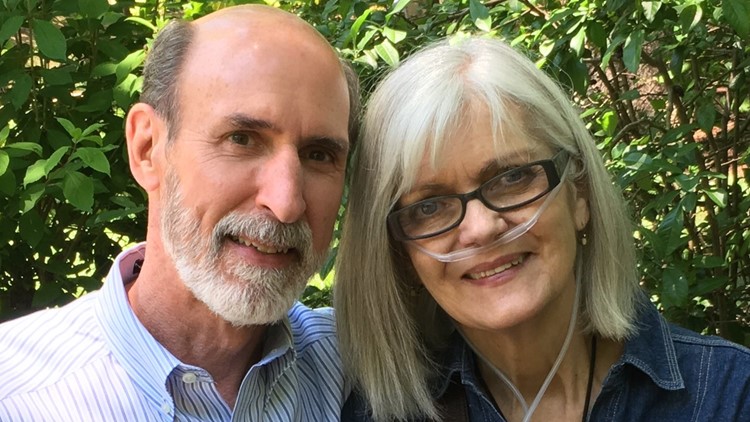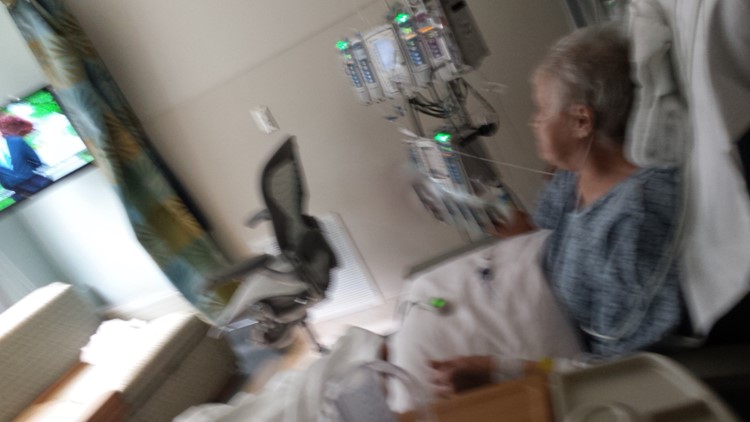CHARLOTTE, N.C. — Hospitals across the country have identified patients in their care that have been sickened, or in some cases killed, by a water-borne infection that came right out of the medical facility's faucets.
If you could paint a portrait of Bette Sue Martineau, it would feature the trademark smile of the Indian Trail mother and grandmother, fueled over her 67 years by her two hearts.
"She was the nicest person I ever met in my life," Mo Broderick said. "She became as close as a sister. She just had such good charity in her heart and goodness."
Sitting inside their Matthews' retirement apartment on a Tuesday morning in July, Mo and her husband Jack shared warm memories of their dear friend, who they first met long before her heart transplant.
"It's just a person you miss," Jack said. "You had fun when she was around."


The Brodericks still struggle with the sad reality that Bette Sue is no longer around. March marked four years since she passed away. Her death certificate identified the immediate cause of death as cardiogenic shock, described by the Mayo Clinic as a condition when a person's heart suddenly can't pump enough blood to meet a body's needs.
"Her death was a real sort of a shocker, because we thought things were going really well for her," Mo said. "We were making plans. I was shocked."
Four months before her death, living with a failing heart, Bette Sue turned to the world-renowned Duke University Medical Center in November 2014 for a heart transplant, according to a wrongful death lawsuit filed by her family against DUMC in May 2018.
Heartbreak followed in March 2015.
"It's hard to talk about her," Mo said in tears. "I didn't know I was going to tear up. I'm sorry."

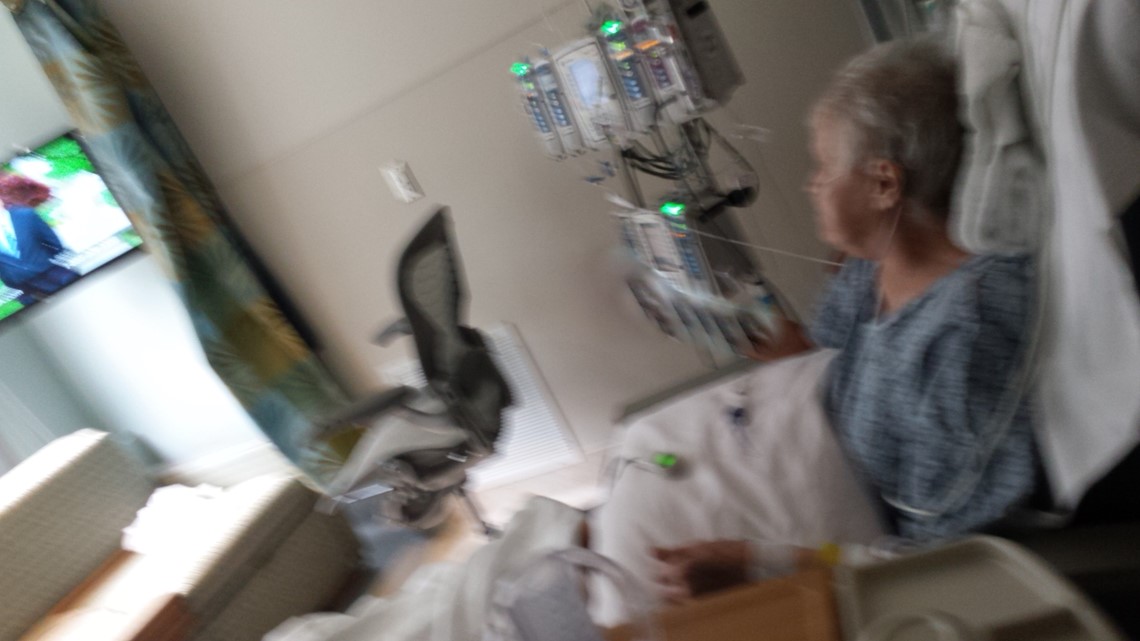
As friends and family mourned her death, Duke-approved research shows the university investigated a multi-year, multi-phase infection outbreak that would go on to affect at least 95 Duke University Hospital patients from 2013 to the end of 2015, all stemming from hospital water. The research found most of the illnesses were confined to the hospital's new addition. Researchers concluded routine care using tap water and unfiltered water in a medical device likely caused the outbreak of illness linked to non-tuberculosis mycobacteria or NTM. In the end, they linked 26 patient deaths, according to the research.
In the month after Martineau's death, her lab results noted "suggestive of NTM."
Researchers at Duke said "patient room faucets, patient care ice machines, ICU hallway water faucets, a patient room shower head, a utility room water basin and an [operating room] scrub sink faucet" tested positive for NTM.
Often found in public water, NTM are generally not a threat to those of us who are healthy, but experts say they are increasingly dangerous for people with compromised immune systems and routinely cause serious infections in people who come in contact with a contaminated water source. They say large healthcare facilities, which have complex water systems and vulnerable patients, are an especially challenging breeding ground.
"We need to be concerned about NTM," hospital safety expert and president of LFM Health Care Solutions Dr. Lawrence Muscarella said. "Patients can get harmed. Patients are getting infected. A patient with a harmed or an ill immune system who cannot fight it, they are much more prone."
Dr. Muscarella said the attention to NTM is "long overdue."
"It seems that inevitably the number of patients becoming infected with NTM will increase and the concern with it is that it is very difficult to treat," he said.
Hospital water infected all of these people, and dozens more.
More than 150 hospitals across the country reported identifying at least one patient with an NTM isolation from 2009 to 2013, according to a 2017 article in the Annals of the American Thoracic Society.
Death rates in the southeast, including in Louisiana, South Carolina, North Carolina and Florida, are among the highest in the nation, according to a 2014 study published in the US National Library of Medicine National Institutes of Health.
"The southeast has long been known to have a higher prevalence of NTM, which may be attributed to its warmer and more humid climate," the US National Library of Medicine National Institutes of Health article explained.
A 2018 article in BMC Infectious Diseases determined, based on 2014 data, overall cases across the nation were projected at more than 50,000. The Centers for Disease Control and Prevention shows NTM resulted in far more deaths than Legionnaires' disease in 2017 with 1,216 deaths compared to 250 deaths.
Patient lawsuits, state environmental health reports and published research document NTM infections in at least a dozen hospitals across the country, including five in the Carolinas since 2013. Hospitals including Carolinas Medical Center in Charlotte, UNC REX Healthcare in Raleigh, Roper Hospital in Charleston, Duke in Durham, and Greenville Memorial Hospital in South Carolina all treated at least one NTM infection, according to court records.
A 2014 South Carolina Department of Health and Environmental Control Outbreak After-Action Report shows four patients passed away at Greenville Memorial Hospital after 18 patients suffered surgical site infections. The report found the NTM infection outbreak "likely resulted from tap water contamination of the surgical field."
"Environmental cultures grew [NTM] in the hospital water, largely from the scrub sinks," the report said. "The depth of the infections would suggest that the infections occurred intra-operatively rather than postoperatively. Dead spaces in plumbing could have potentially lead to amplication of NTM within the facility."


Thomas Fowler was lucky enough to survive his infection, but the 82-year-old open heart surgery patient said he continues to suffer five years later.
"It felt like something just pulling me apart in there, a claw or something just stretching me inside out it hurt so bad in my chest and all," Fowler said of the infection. "I've just about gave up hope on it. Sometimes you almost wish you wasn't even here."
A South Carolina Outbreak After-Action Report at Roper St. Francis Hospital in Charleston shows 27 confirmed cases of NTM from 2015 through 2017, including many plastic surgery patients. The report identified the presence of NTM in the hospital's water distribution system, but did not identify the direct transmission pathway.
While contaminated water was the documented root cause in the majority of the Duke cases, as well as all cases at Greenville and potentially the cases in Charleston, the Food and Drug Administration warned a surgical heating and cooling device that used hospital water played a role in many cases across the country too. The CDC reports the heater-cooler units were likely contaminated "on the production line and water supply at the manufacturing facility."


Atrium Health, which owns Carolinas Medical Center in Charlotte, confirmed it identified "only one patient who may have gotten an NTM related skin infection," who has since recovered, from the heater-cooler.
"In 2015, the CDC notified providers across the country about concerns with the Sorin heater-coolers," Atrium Health said in a statement. "Atrium Health removed the Sorin heater-coolers from all our facilities and replaced them with a different type of heater-cooler which has not been associated with the NTM infections."
UNC REX Healthcare confirmed, while there were no deaths, there was "a very small number of patients diagnosed with some type of NTM infection in Raleigh," according to a statement.
"In November 2016, UNC REX Healthcare became aware that the Centers for Disease Control and Prevention (CDC) and Food and Drug Administration (FDA) were investigating reports at some hospitals nationwide that a device used to heat and cool blood during open-heart surgeries was linked to a rare bacterial infection," the health system said. "The CDC reported that the medical device might have been contaminated during manufacturing, creating the potential for an infection caused by Mycobacterium chimaera, one of several different species of bacteria known as nontuberculous mycobacteria (NTM). The CDC estimated the risk to be less than 1 percent. At the recommendation of the CDC, UNC REX notified patients who had undergone open-heart surgery about the very low risk of a potential infection."
As a result of the federal concerns and patient lawsuits, the manufacturer, LivaNova announced a $225 million settlement this year.

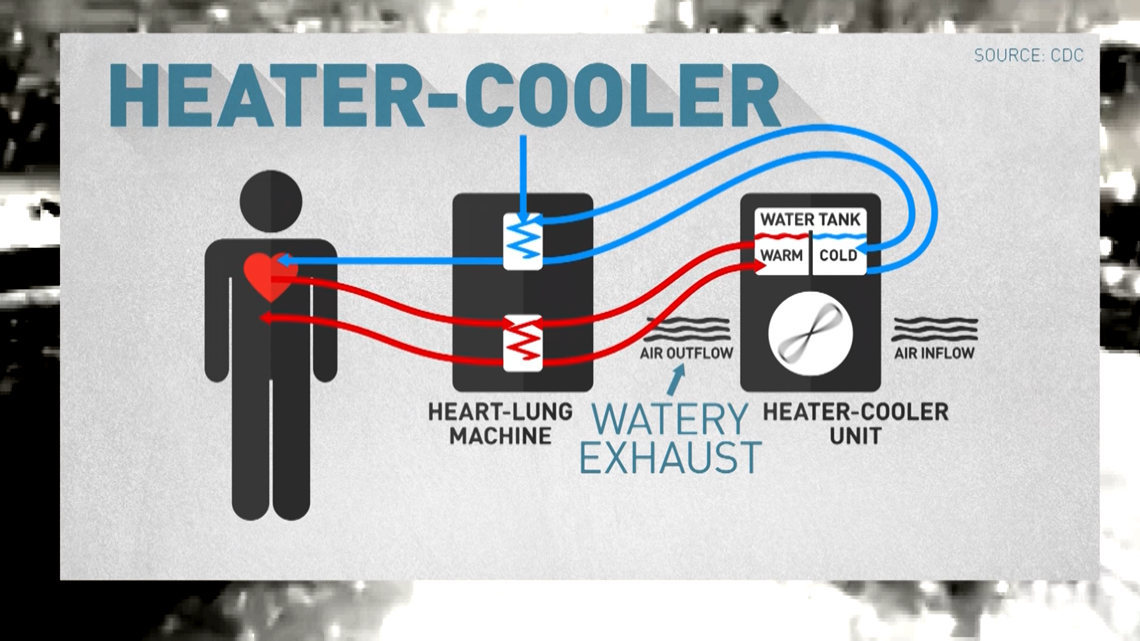
That said, experts warn the problem often starts with the water and how that water flows through the pipes.
"They keep designing buildings with unintended side consequences that really shouldn't be happening," University of Arizona Public Health Associate Instructor Dr. Molly Scanlon said.
Dr. Scanlon said hospital designers and construction crews routinely put an emphasis on efficiency, but the design often does not take into full account simple water management strategies that can prevent problems like NTM infections.
"They're selling the design and the efficiency and they're not thinking about the safety aspect and that's not appropriate. It's not intentional, it's just not appropriate," she said. "It's unacceptable to have a child or my grandmother or whomever become ill and die over a waterborne pathogen that was completely preventable...We just have to raise everybody's game."
After the outbreaks at Greenville and Duke, the hospitals installed water filters in operating rooms and made engineering changes. Records show both increased water flow to make it more consistent, better flushed pipes and strengthened disinfection of heater coolers.
"We now believe that surgery processes involving the use of tap water may have inadvertently brought the organism into the perioperative environment," GHS Medical Director of Quality Dr. Robert Mobley Jr., said in July 2014. "Although we use sterile water in or near the surgical sterile field, even something as seemingly safe as pre-surgery hand washing may have contributed. At this time, we have not been able to find any single cause or process as the trigger for the outbreak, but we've taken extraordinary measures to protect our patients – and believe we've succeeded. With patient safety as our first priority, we are taking protective measures to prevent further exposure to tap water in the operative environment."
The state report found "no infections among patients who underwent surgery after the initiation of mitigation measures" at GHS.
At Duke, the hospital also implemented a sterile water protocol. Research shows the changes greatly reduced the risk, but the health system also recently acknowledged "sporadic" cases can occur.
"Non-tuberculous mycobacteria are environmental organisms that can colonize municipal water supplies and, as a result, be present in homes, commercial buildings and hospitals," Duke Health officials said in a statement. "The chances that an individual contracts one of these infections in any location is highly dependent upon underlying medical conditions. Despite comprehensive initiatives designed to minimize the likelihood of developing non-tuberculous mycobacterial infections in vulnerable patients, sporadic healthcare-associated cases are known to occur."

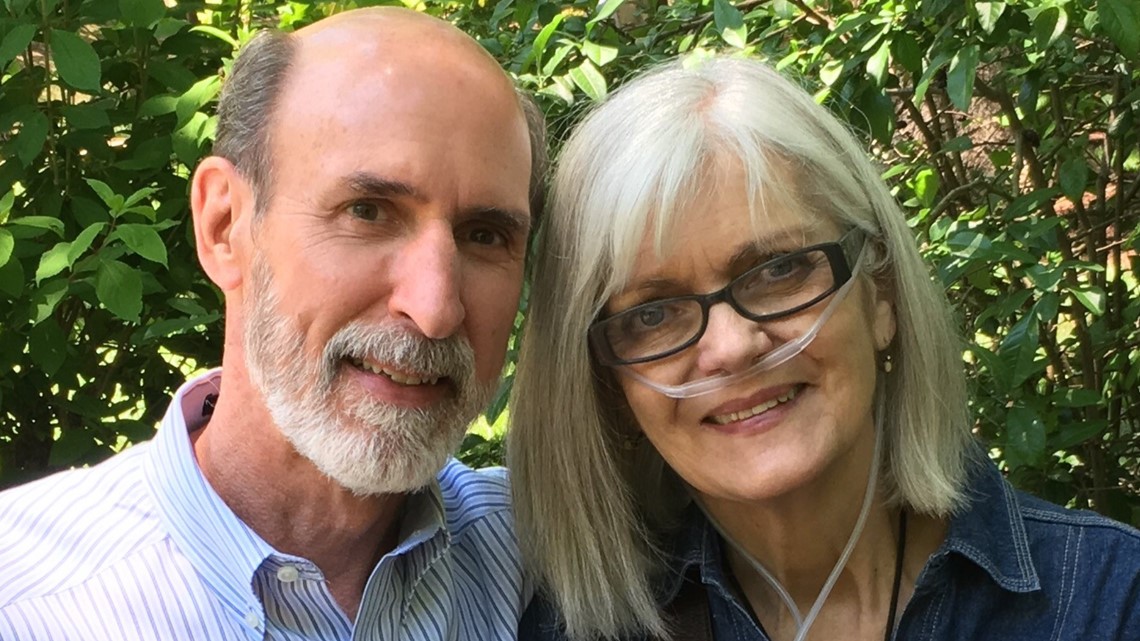
Sadly, Greg Fischer learned of NTM years after the initial outbreak at Duke. He said his wife Kate received a double lung transplant at Duke in 2017. Less than three months later, while still recovering from transplant surgery, medical records show an indication of NTM.
"This was the dirty waterborne bacteria that had affected so many patients before us," Fischer said as he sat next to his wife's picture inside a Greensboro office. "The infection was nested in a lung."
Records show doctors gave Kate medication to fight the infection, including one with documented sides effects. Fischer said the treatment took a physical toll on Kate, eliminating her quality of life and kidney function and also drained her emotionally.
"She was losing her will to fight," he said.


Fischer believes the NTM infection eliminated her will to live. He said his wife of 45 years struggled to fend off other complications and in May of this year, the marathon runner, once so full of hope, lost that fight just days after Mother's Day.
Her death certificate identified the immediate cause of death as "Acute hypoxic respiratory failure."
"It's just not the same and never will be the same," Fischer said fighting back tears.

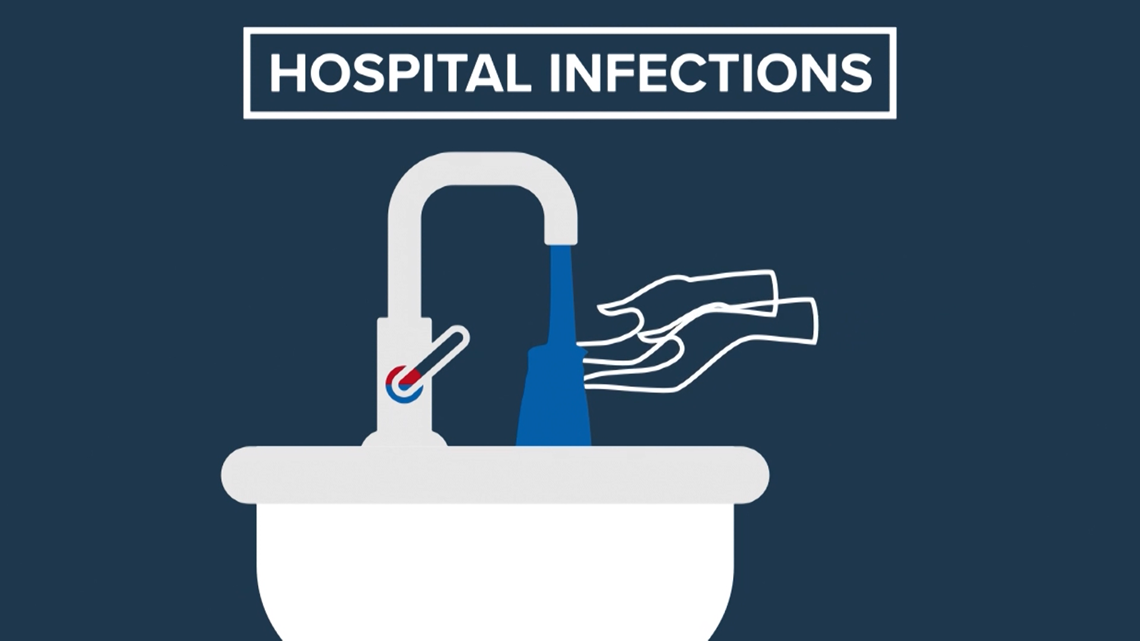
As part of the Duke study, researchers made 11 recommendations for other healthcare facilities to prevent outbreaks as well. Even so, Fischer's family was left grieving several years later.
"Wasn't it frustrating to have that history and then this impact your life?" we asked.
"I was fortunate that I got to leave and my life went on and work and support our home environment and Kate though was able to lay in her bed at the hospital, stare at the ceiling and ponder, 'How did this happen? How could this happen in an environment that's supposed to be protecting these lungs?' We never know. We never will know," her husband said.
UNC Rex also made changes to prevent future infections.
"UNC REX followed a rigorous cleaning process with the heating-cooling devices that exceeded manufacturer recommendations," the health system said. "Repeated culture testing on the machines at issue did not detect any evidence of mycobacteria. UNC REX also utilizes the services of water safety specialists who routinely sample our water and make recommendations to reduce the risk of waterborne infections. UNC REX is committed to patient safety – we are proud to be one of only 36 hospitals nationwide to receive straight A's since the Leapfrog Group began its hospital safety report card in 2012."
Atrium Health, like the other health systems, reports it improved its processes too.
"In addition to heater-coolers, Atrium Health takes a very proactive approach with regards to minimizing risk of water borne infections in our facilities. This includes:
• Use of copper silver water treatment in our hospitals to reduce water contamination
• Routine water cultures to evaluate for contamination
• An established multidisciplinary Water Management Team with representation from plant operations, facilities and infection prevention
• Minimization of use of heater-coolers when not necessary during surgery
• Placement of heater-coolers near exhaust vents and away from the patient to minimize any aerosols coming in proximity of patients
In addition, we routinely monitor for patient infections. Since 2015, we have not seen any concerning clusters of hospital acquired mycobacterial infections or any other water borne infections, and have identified only one patient who may have gotten an NTM related skin infection from the Sorin heater-cooler, who has since recovered."
Both Atrium and Novant Health are in the process of building new hospitals. Novant assured us it takes step to protect its patients.
"The quality of our water supply is always top-of-mind and we are proactively engaged in developing systems to help ensure its safety," a Novant Health spokesperson said. "We not only follow and meet CMS guidelines, but we work diligently to ensure we surpass standards. Specifically, we have a robust water quality program, which includes: Partnering with a water quality consulting agency; Conducting routine testing of our water quality, cooling towers and other metrics; Evaluating internal studies and data, and implementing procedures to improve outcomes. As with any Novant Health facility, we will work to ensure the engineering of our water system meets all safety and quality standards. We look forward to forthcoming recommendations from the CDC on water and construction (Water – Infection Control Risk Assessment) that we can adopt as we continue planning for our medical center in South Charlotte."


Bette Sue's family's filed a wrongful death lawsuit against Duke, which was dismissed this summer, according to court records. Both her daughter and her attorney said they were not allowed to talk about the case in any way.
"Unfortunately, I am unable to talk about or offer information regarding my mom's case but I wish you the best of luck with your investigation on this extremely important issue," daughter Melissa DeLazier said when contacted in July.
"(We) are legally obligated not to discuss this matter," attorney Michelle Gessner said in October. "To be clear we are not permitted to discuss this matter in any way."
Duke declined comment as well.
"We do not comment on litigation," Duke Health officials said in July when contacted. "The published, peer-reviewed paper in Clinical Infectious Diseases accurately detailed events of several years ago that have since been resolved."


Back at the Broderick's apartment, they flipped through an album of pictures, many featuring their beloved Bette Sue.
"You just wanted to be around her all the time," Mo said.
Bette Sue doesn't just live on in those pictures and people's memories. She lives on in the portraits she hand painted for every one of her friends, including Mo Broderick. She'd give the portraits to those friends on their birthdays.
Fittingly, Bette Sue's memorial portrait wasn't the only one on display at her service. Her friends filled the memorial service with the same presents she gave them over the years, nearly 100 hand painted portraits, all the creative work of their dear friend whose two hearts still give love today.
More news:

